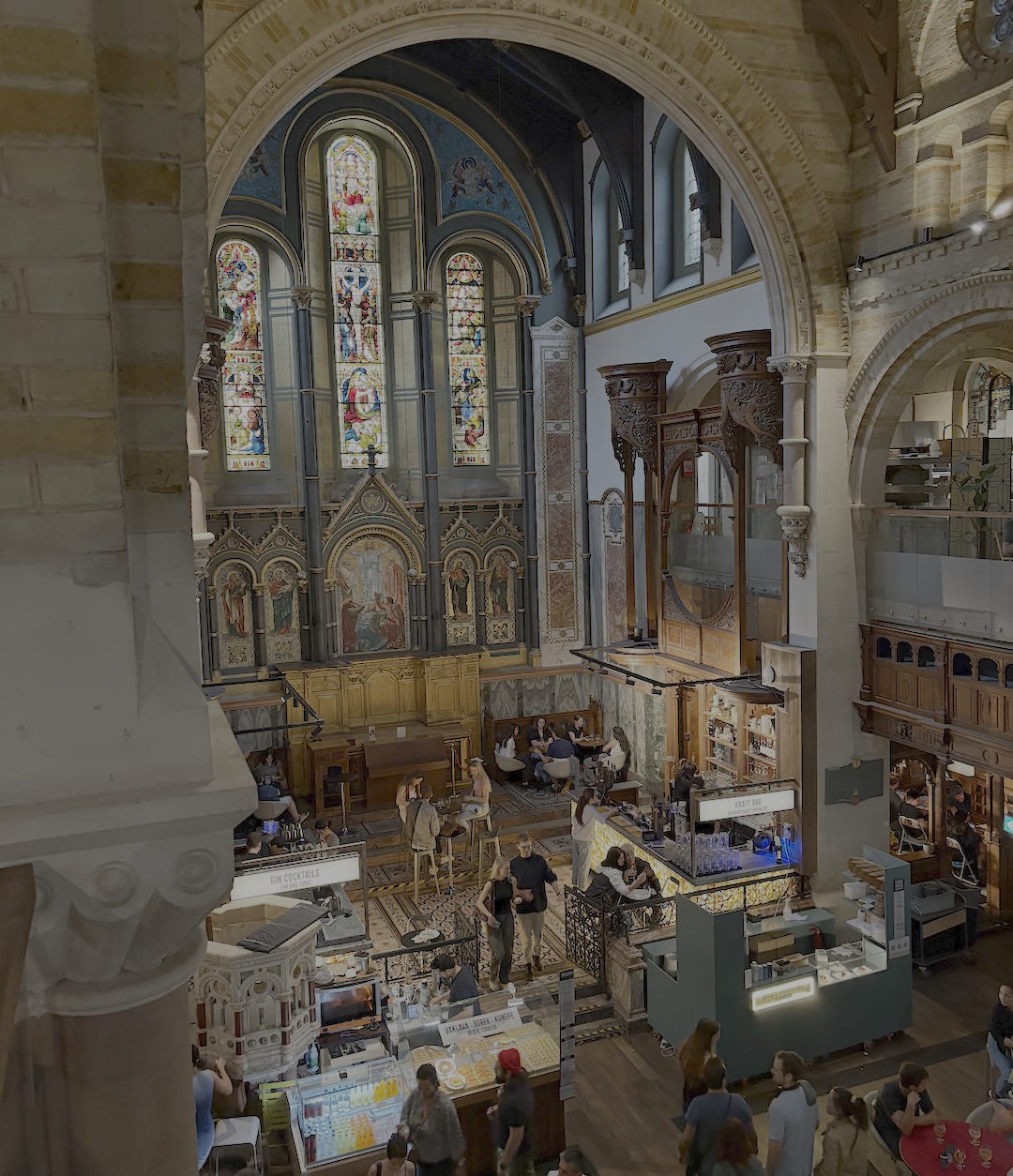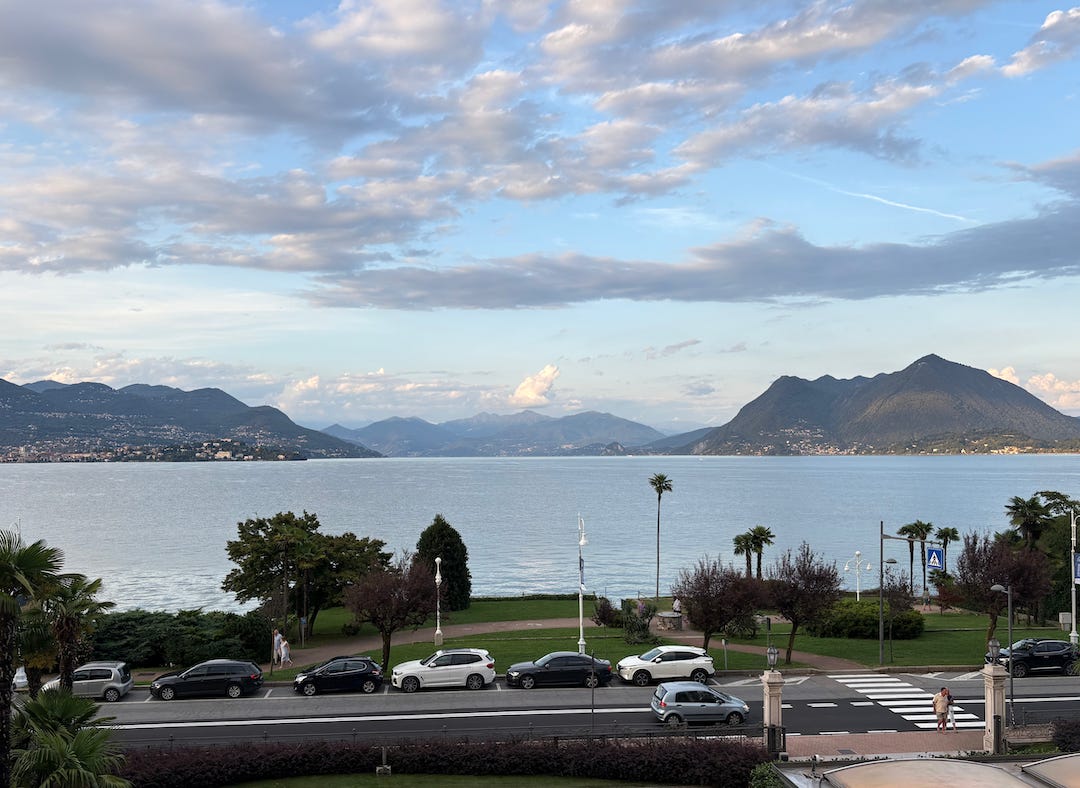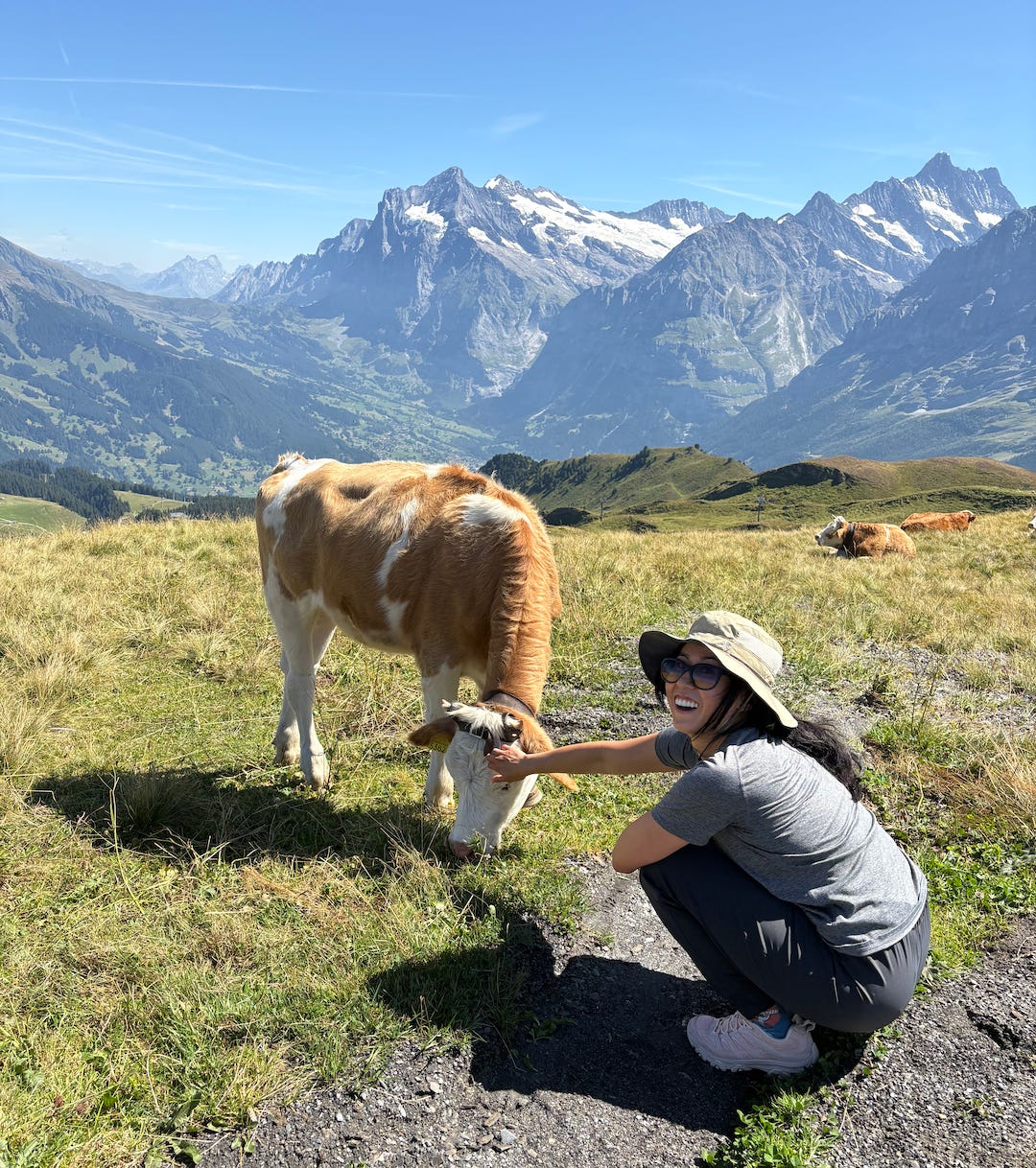Summer in Europe is Alpha for Americans
Plus Trump's perplexing effect on the stock market, Ed Sheeran copyright case, and the dedication needed for search funds.
This summer I spent almost four weeks in London and another two weeks hiking through Switzerland and eating through Italy before flying back to the US.
What’s immediately apparent as a tourist: Europeans undeniably understand how to live. Let’s ignore the fact that I’m spending more money than I ever would as a tourist instead of resident. But there is something incredibly about watching musicals in London, taking gondolas to peaks and hikes in Switzerland, and riding a Vespa to different cafes around Lake Maggiore. And throughout it all, there are small intricacies that tell me Europeans have learned the art of relaxation in ways that Americans haven’t.
Fro example, from even the earliest days of Benjamin Franklin going to Paris to convince France to bankrupt their country to fund the Revolutionary War, Franklin realized that the culture of work and relaxation was different:
If in the Philadelphia of his youth Franklin had recognized the value of seeming to work hard, in Paris, at age 70, he quickly mastered the essential French art of accomplishing much while appearing to accomplish little. Industry and efficiency were still foreign concepts in the Old World, calibrated in glory and style…
…Few were aware of the actual drudgery Franklin faced daily, and to which he often devoted several hours in the middle of the night. The paperwork alone was appalling. At no time did he appear to bend under his burden, however, just as he never offended his hosts by arriving punctually, as did his countrymen. He now lived in a world in which tardiness practically constituted an art form.
This European art of relaxation shows up in how they've reclaimed foods Americans industrialized. We turned their burgers and fries into fast food, yet in London and Brussels, I saw people queue for artisanal frites in paper cones with house aioli. The verdict after trying them? Nothing to scream about.
Europe has designed itself as Disneyland for adults in this regard. You can see it in how they’ve built urban density, seamless public transportation, and outdoor café culture. Switzerland exemplifies this in how they balanced commercializing their mountains while preserving natural beauty. Gondolas and trains run from valleys to peaks, carrying passengers with beer and sausages to mountaintop views in every direction. It would be like taking a train from San Francisco with a few transfers and ending up at the top of Half Dome in Yosemite, except the Swiss actually built this impossible dream.

There's a perfect arbitrage as an American tourist: spend summers in Europe, return to America to earn the money that funds the next European trip. And therein lies the truth for why the transition from tourist to resident would never be possible. European wages stagnate while American salaries soar. The economy struggles with structural problems Americans rarely see as visitors. Even basic comforts like air conditioning remain scarce, despite thousands of annual heat deaths, because climate concerns override individual comfort.
Tourism creates tension everywhere, and Europe faces its own version of what I've written about in Bali as the commodification of their heritage becomes huge in the summer by tourists like myself. Remember the Barcelona activists spraying tourists with water guns or the rise of pickpockets and bracelet scammers targeting unsuspecting crowds. Switzerland offers the best model for this future: high GDP per capita built on premium tourism that doesn't destroy what makes the place special. Other European countries are still figuring out that balance, and I really hope they do. But in the meantime, try visiting Europe in the summer.
Things to Share
Here’s two articles from Paul Krugman and Matt Yglesias trying to explain why Trump’s assault on our democratic institutions is not affecting the stock market. As with all macro analysis, it’s all a bunch of hypotheses. But their main prediction is that the markets don’t tumble until the disaster in real nominal day-to-day terms is upon us, citing the last 2008 market crash which happened only after normal people were defaulting on their mortgages.
While in London, we visited Belgium for a weekend trip to see Ed Sheeran play in Antwerp. It was an incredible performance not only because he’s an incredible performer, but Sheeran also told compelling and funny stories throughout his act while doing some interesting song mixing (I had never really seen “looping” before). Sheeran also talked about his lawsuit in the performance which he eventually won. I was surprised by how many previous lawsuits were actually won by people claiming copyright infringement across musical melodies, where when you listen to each song, clearly sound like a bogus claim by the plaintiffs. An interesting excerpt from the article, Sheeran now tapes every single one of his song-writing sessions to prove to future courts that he’s not plagiarizing.
As MBA graduates continue to struggle with post-graduate employment outcomes, it seems inevitable that the rise of search funds continue to explode. Business Insider details the full cycle story of a guy who bought an air duct cleaning company. An interesting note on how much dedication matters: the company he bought he had to email 12 times until he got one response. Then when the owner asked when he could see it, he immediately flew across the country the next day to check it out. This was also after 22 months of nothing to show for the search fund.



